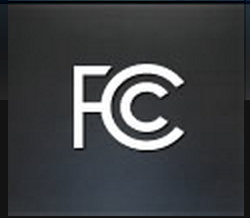Wednesday afternoon reports surfaced saying that new proposed open internet rules from the FCC will permit companies to pay internet service providers, like Comcast or AT&T, to deliver their content faster. The source of the report has only been credited to an unnamed “FCC official.”
The reaction to this news was swift, with many consumer advocacy groups like Public Knowledge and Free Press issuing statements strongly criticizing this proposal. In a statement Free Press President and CEO Craig Aaron said,
“With this proposal the FCC is aiding and abetting the largest ISPs in their efforts to destroy the open Internet. Giving ISPs the green light to implement pay-for-priority schemes will be a disaster for startups, nonprofits and everyday Internet users who cannot afford these unnecessary tolls.”
Tech news site The Verge led with the headline “FCC proposal would destroy net neutrality,” while the Washington Post’s headline said “The FCC is planning new net neutrality rules. And they could enshrine pay-for-play.”
This response seems to have struck a nerve at the Commission. In a move that is otherwise unusual for an FCC Chairman, around 10 PM Eastern Time Wednesday night Tom Wheeler released a statement, saying, “There are reports that the FCC is gutting the Open Internet rule. They are flat out wrong.”
He continues,
“Tomorrow we will circulate to the Commission a new Open Internet proposal that will restore the concepts of net neutrality consistent with the court’s ruling in January. There is no ‘turnaround in policy.’ The same rules will apply to all Internet content. As with the original Open Internet rules, and consistent with the court’s decision, behavior that harms consumers or competition will not be permitted.”
The proposal for these new rules are set to be released Thursday afternoon. We’ll have to wait until then to see whether the threat is real, or if today’s report was a false alarm.
While internet speed has a more significant impact on video services like Netflix, which require significantly more bandwidth than a web page or streaming audio, open internet and net neutrality rules also affect internet radio. If one large provider is willing and able to subsidize bandwidth to consumers, then that company is able to obtain advantages, and effectively buy listeners, compared to smaller, independent broadcasters.
Moreover, while most streaming music services and internet stations these days provide compressed audio streams, there is a growing movement towards higher resolution and higher fidelity digital audio. One only needs to look at Neil Young’s recent blockbuster Kickstarter for his uncompressed, high resolution Pono audio player and music service to see how this trend is moving into the mainstream.
However, higher fidelity requires more data, more bandwidth and therefore faster internet speeds. Moving from a typical 128 KBps MP3 stream to uncompressed CD quality requires a nearly 10-fold increase in bandwidth. Moving into the higher resolutions supported by hi-fi players like Pono increases that another 10-fold, making high fidelity streaming audio more like HD video in terms of bandwidth.
Even if these sorts of high quality internet audio streams are not yet mainstream, it isn’t hard to see how a “pay-for-play” internet could stymie their development along with independent start ups looking to fill this niche.
Looks like tomorrow will be a big day for everyone who uses the internet.



